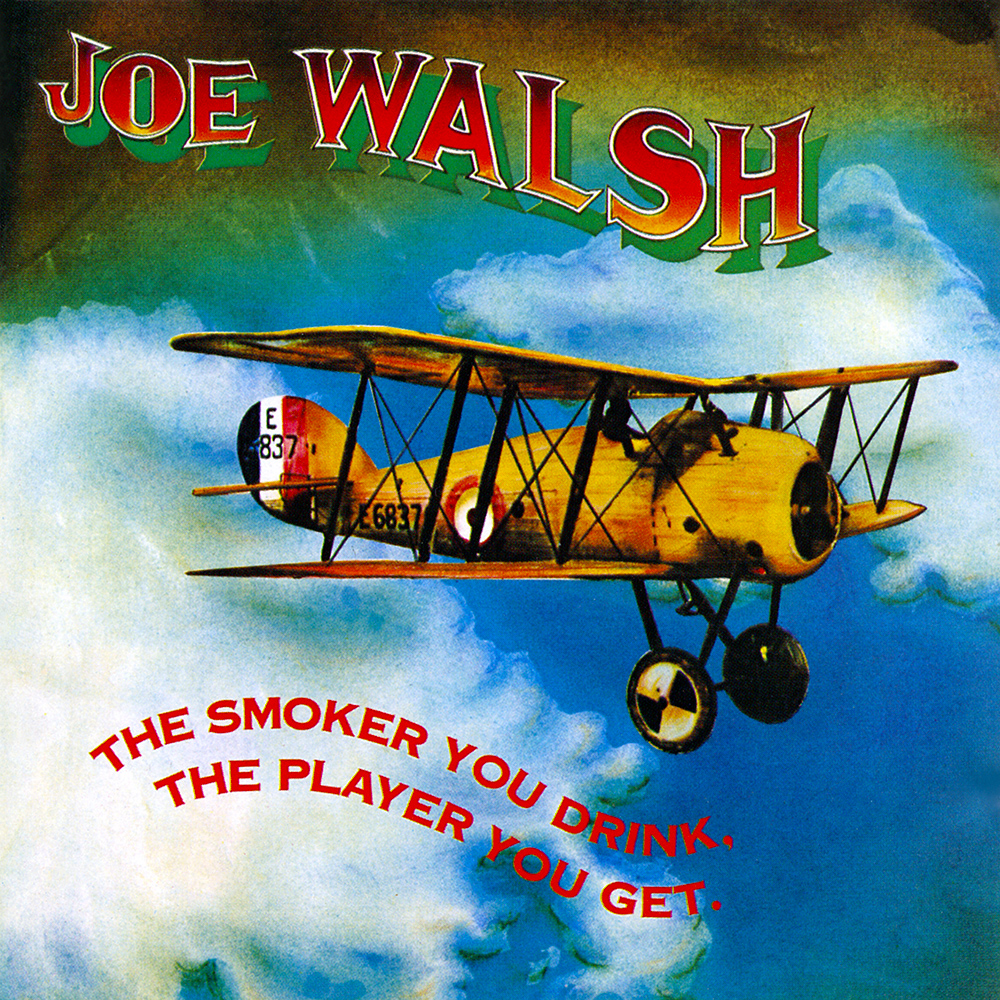 As a kid, Joe Walsh never got used to his family moving around a lot. Born in Wichita, Kansas, in 1947, Walsh spent time off and on in Illinois and Ohio, and as he told John Tobler and Stuart Grundy, authors of The Guitar Greats, “I went to junior high school in New York City, to high school in New Jersey, and then I went back to Ohio for college, so it’s really difficult when I’m asked where I come from, because I don’t know.”
As a kid, Joe Walsh never got used to his family moving around a lot. Born in Wichita, Kansas, in 1947, Walsh spent time off and on in Illinois and Ohio, and as he told John Tobler and Stuart Grundy, authors of The Guitar Greats, “I went to junior high school in New York City, to high school in New Jersey, and then I went back to Ohio for college, so it’s really difficult when I’m asked where I come from, because I don’t know.”
As Walsh developed an interest in music, inspired by Ricky Nelson and his guitarist James Burton on The Adventures of Ozzie and Harriet TV show and the Beatles’ first appearance on The Ed Sullivan Show, he found himself moving around again, this time between local bands like the G-Clefs, the Nomads and the Measles in the environs of Kent, Akron and Cleveland, Ohio. In his childhood he’d messed around with piano, clarinet, trombone and oboe—his mom was a classical pianist—but rock and roll drove him to six strings: “I ended up playing guitar basically because I hated everything that I was forced to practice, and because guitar was my own little project, nobody forced me to practice, so that was really the instrument I enjoyed.”
A big break came in 1969: “The James Gang were good, a five-piece band who were one of the top acts in Cleveland, and by that time, I was one of the top guitar players in Kent or Akron. Their guitarist, Glenn Schwartz, was an amazing player, and I was invited to fill his shoes. So I joined the James Gang and we played about a year in various clubs around Michigan, Ohio, Indiana and Pennsylvania, but we didn’t get along that well with five of us, so it ended up being a three-piece group, a bit like the Jimi Hendrix Experience or Cream, which was the really popular way to be in those days. It was training for me, because I was the only melodic instrument, and I learned to enjoy playing rhythm and lead at the same time, and I also had to sing.”
The veteran producer-engineer Bill Szymcyzk, scouting talent for ABC Records, signed them, and they recorded Yer Album for the Bluesway subsidiary label. The band did good business especially in the Midwest, and scored a minor hit with “Funk #49” from its sophomore LP, but Walsh eventually left, moving to Colorado after turning down a chance to replace Peter Frampton in Humble Pie. In 1973 he told Melody Maker, “I was frustrated at having several musical ideas that were difficult to do with just three people. I was burning out through having played with them for three years and it seemed the logical next step for me. The group developed and got as far as I thought it ever would. There was also frustration at having a lack of control of the quality of the music. It turned into a successful group and therefore it turned into big business with expensive ticket prices and heavy schedules and not so much creativity as there had been at the beginning.”
Despite a desire to have more players to execute his more ambitious musical dreams, Walsh formed another trio called Barnstorm with Kenny Passarelli (bass/guitar/vocals) and Joe Vitale (drums/keyboards/flute/vocals) under the watchful eye of Szymczyk, who’d relocated to Denver. Walsh and company came up with their debut LP, the first recorded at a new state-of-the-art studio, Caribou Ranch. Titled Barnstorm but credited to Joe Walsh, it featured the ARP Odyssey synthesizer and a variety of guitar styles and effects, including Leslie and slide.
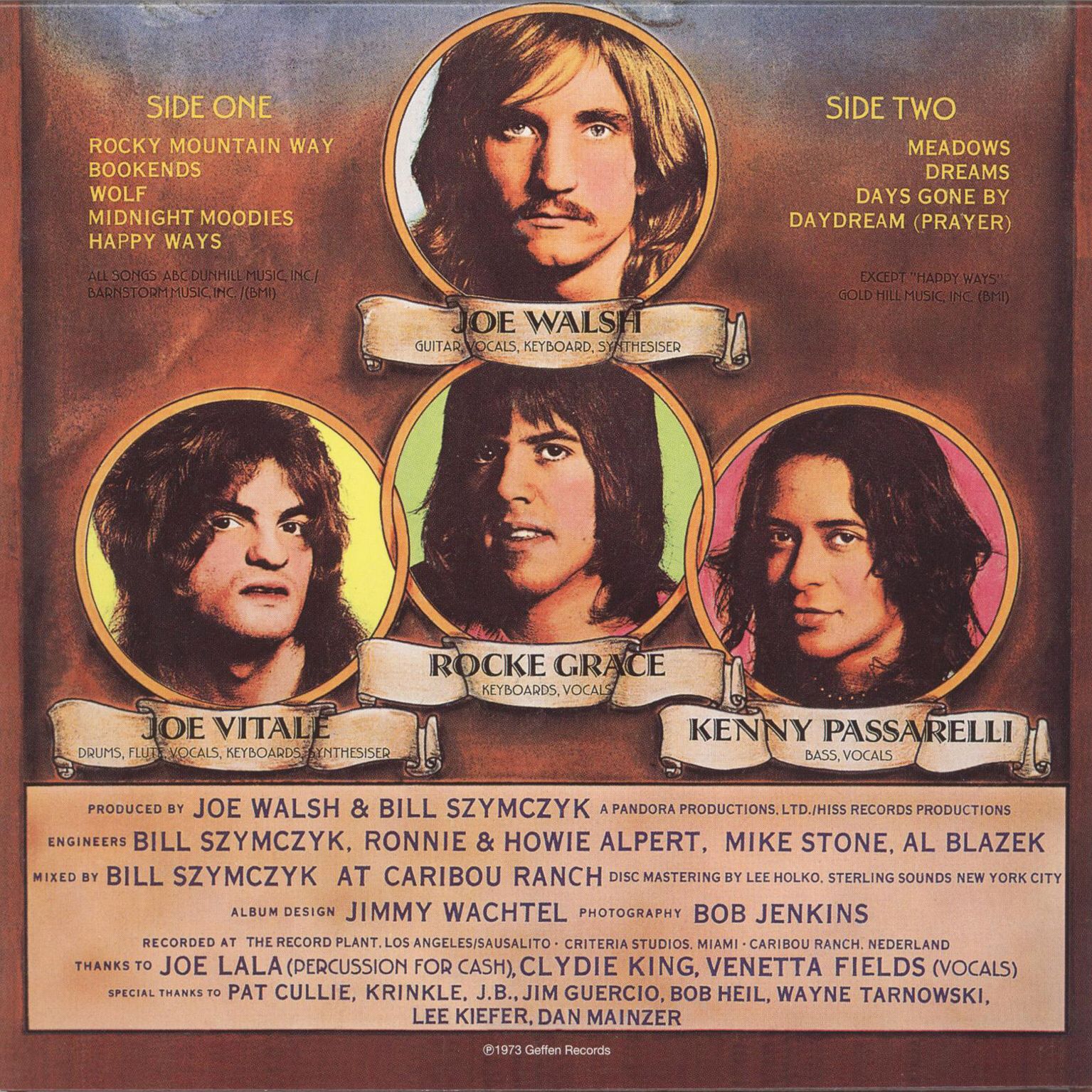
A more solid commercial breakthrough, The Smoker You Drink, The Player You Get, recorded at Caribou and L.A.’s Record Plant starting in late 1972, followed. Barnstorm was augmented by new member Rocke Grace (keyboards/vocals), percussionist Joe Lala and celebrated backing vocalists Vanetta Fields and Clydie King, who’d recorded with Humble Pie, Joe Cocker, Ray Charles and many others.
The album title, a play on the joking slogan “The higher you get the better you play,” no doubt refers to both the altitude in Colorado and the drink and drugs on hand. The opening track, “Rocky Mountain Way,” written by the whole band, certainly announces Barnstorm’s heavy musical chops with two riffing guitars, one in each stereo speaker, an extremely processed Walsh vocal, and pounding piano. “Spent the last year Rocky Mountain way/Couldn’t get no higher/Out to pasture/I think it’s safe to say/Time to open fire,” the funky-bluesy singer declares, after which slide guitar and a crisply recorded rhythm section push the track to new peaks.
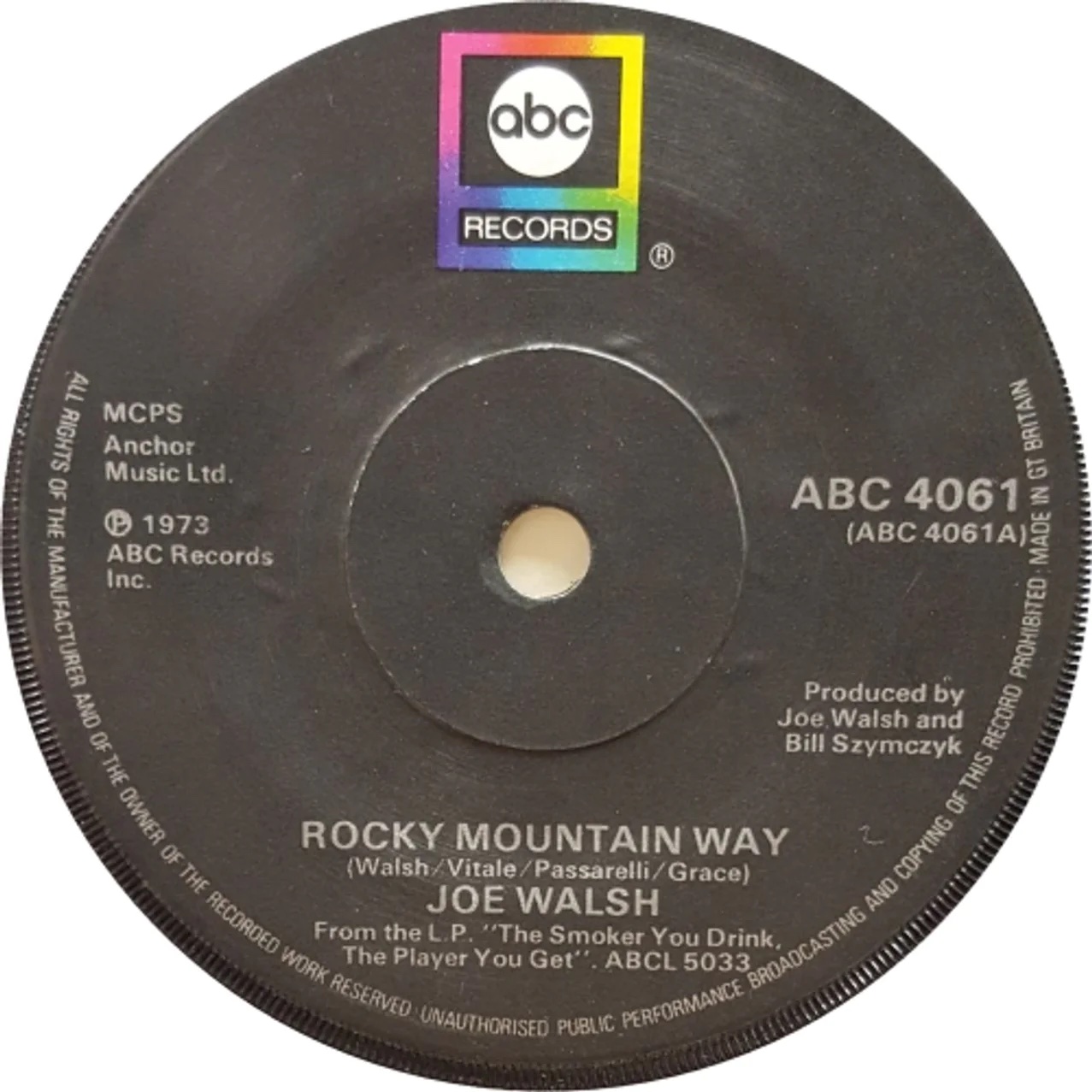 At the three-minute mark Walsh launches the Talk Box, a device that allows the voice to modify the sound of plucked guitar strings. Combined with the burbling synthesizer and insistent rhythm, the track sounds like something Stevie Wonder might come up with—until it’s all topped with a majestic slide guitar solo with a lusciously slow fade. Released as a single, the track only made it to #23 in Billboard, but it’s been a radio favorite ever since, and (getting ahead of the story) it’s always played live whenever Walsh is on stage with the Eagles.
At the three-minute mark Walsh launches the Talk Box, a device that allows the voice to modify the sound of plucked guitar strings. Combined with the burbling synthesizer and insistent rhythm, the track sounds like something Stevie Wonder might come up with—until it’s all topped with a majestic slide guitar solo with a lusciously slow fade. Released as a single, the track only made it to #23 in Billboard, but it’s been a radio favorite ever since, and (getting ahead of the story) it’s always played live whenever Walsh is on stage with the Eagles.
Watch a performance of the song on The Midnight Special two months after the album was released
Vitale sings lead on his two compositions “Bookends” and “Days Gone By.” The second is the more confident and accomplished, featuring Vitale’s flute in a fluidly complex arrangement that has pleasant echoes of Elton John and Gilbert O’Sullivan. It’s the longest track on the LP and justifies its length, especially in the final minutes when flute, Walsh’s piercing electric guitar and a killer bass line (possibly synth bass) combine with some psychedelic effects wonderfully orchestrated by Szymczyk. “Bookends” sounds more tentative, and Vitale’s pitch wobbles here and there.
Walsh’s unusual “Wolf” opens with a winning combination of 6- and 12-string guitars. Ominous lyrics and melody draw the listener into a fairy tale—or is it a nightmare?—scenario: “It’s raining in the meadow/Shepherd’s gone to town/Wolf has finished breakfast/No one else around.” The track is all about mood, and it really pays off with 3:10 of chills. It’s evidence that Walsh is expanding his sonic palate way beyond “heartland rock.”
The impressive Latin-tinged instrumental “Midnight Moodies” is written by Grace, and begins with his stately acoustic piano and a looming, snaking synth. Vitale’s jazzy flute, Lala’s congas and a terrific delay effect for Walsh’s muscular guitar solo keep things interesting.
Passarelli’s “Happy Ways,” co-written by Bernard Zoloth (an artist manager buddy of Kenny’s), features bass, timbales and excellent acoustic and electric guitar work. It sounds inspired by Stephen Stills’ Latinate rockers “Uno Mundo” and “Love the One You’re With,” which makes sense given Passarelli also played with Stills, but the lead vocal’s not strong enough to elevate the recording much beyond pleasant filler.
It is rather extraordinary how much room Walsh gives to his bandmates on side one of the LP, indicating he enjoyed the collaborative aspects of Barnstorm even while commercial considerations may have dictated their work be credited to “Joe Walsh” on the front covers of all three albums they did during their short time together.
Side two consists of the aforementioned “Days Gone By” and three Walsh-penned songs. He really shines on his suite of tunes, with his best vocals and Szymczyk’s uncanny ability to create a detailed musical atmosphere. There’s also plenty of excellent synthesizer work from Walsh and Grace.
“Meadows” begins with an unhinged, screaming Walsh, goofing off, before the pleasant Beatles-infused melody and arrangement kicks in. As with “Rocky Mountain Way” but in a more folky vein, the entire band plays at a high level of sophistication. The drumming brims with ideas, and the recurring descending figure at the end of verses echoes one of Pete Townshend’s favorite dramatic tricks. (Townshend befriended Walsh years before when the James Gang supported the Who, and here Walsh nods in the direction of his friend and mentor.) Released as a single, “Meadows” barely scraped into the Hot 100, and deserved better.
“Dreams” is a slow-burning, keyboard-based ballad with hints of Steely Dan and David Bowie in the sonic feel and arrangement. The exquisite vocal arrangement emphasizes the sensual languor of the lyrics: “Taking the time for dreams/Off to waste the day/Plunging headlong, yeah/Nothing is what it seems.” It’s another example of the wealth of ideas Walsh had at the time, stretching well beyond the meat-and-potatoes rock of the James Gang. The gorgeous, brief “Daydream (Prayer)” ends the album with a soaring, melancholy melody reminiscent of Todd Rundgren.
The Smoker You Drink… released on June 18, 1973, ultimately reached #6 on the Billboard album chart. Looking back on Barnstorm with Tobler and Grundy, Walsh said, “I’ll go out on a limb and say that we were a very, very good band for a period of time, but unfortunately Barnstorm was only noticed and recognized as being a very good band after we had started to disband. The timing was just a little bit off.”
Although Passarelli and Vitale played on Walsh’s next album So What, released in December 1974, it was much more a Walsh solo affair. Just before the LP release he told Rolling Stone, “I know this album’s going to be an important one for me, but it’s not easy to just crank them out anymore. I’ve got what, six or seven albums out. I don’t want the next album to sound like a bunch of outtakes from Smoker. I want it to be the difference between Revolver and Sgt. Pepper.”
The presence of singers Don Henley, Glenn Frey, Dan Fogelberg, Randy Meisner and J.D. Souther on So What provided a hint of his next move, replacing Bernie Leadon in the Eagles after Szymczyk (now producing the group) pushed for them to take a chance on integrating a player considered by some members too “wild” for their more-or-less-country-rock band. Hotel California, one of the best-selling albums of all time, was the result.
Today, Walsh’s solo discography continues to grow as the Eagles’ off-again-on-again career survives for decades. He’s played with his brother-in-law Ringo Starr’s All-Starr Band, in the Best with Keith Emerson and John Entwistle, and even reformed the James Gang for various charity events. Naturally, he was included in the 1998 induction of the Eagles into the Roll and Roll Hall of Fame. Married five times, clean and sober since 1995, he’s rightly considered one of rock’s most lovable goofballs, a persona he’s cultivated in songs, including his biggest solo pop hit, “Life’s Been Good.” Presumably, Walsh has changed a bit since he wrote “I go to parties sometimes until four/It’s hard to leave when you can’t find the door,” but only his close friends and family know for sure. [His solo catalog is available here.]
Watch Walsh perform “Meadows” live in 2012

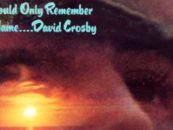
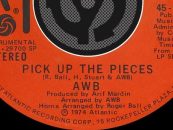
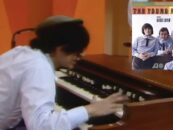


1 Comment so far
Jump into a conversationWho doesn’t like Joe Walsh? I grew up in the late 50’s, ’60’s & ’70’s, when we had the greatest bands ! Walsh was superb with slide guitar & I think his biggest break & the Eagle’s best choice, was when he became an Eagles member. I remember it all, also how “goofy” he was in the ’80’s with the Mark & Brian on KLOS FM radio in So. California, where I was born & raised. There will never ever be another guitarist/singer as Joe was & still is! Love the man!